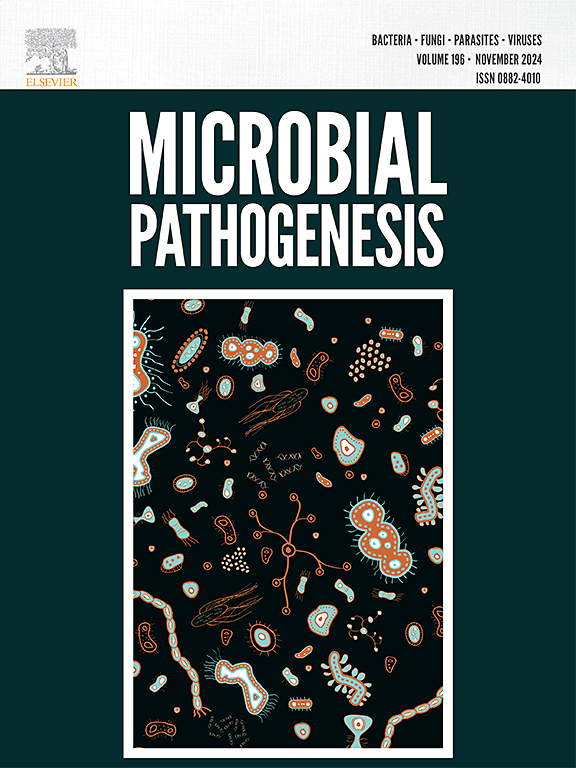Study on TGF beta polymorphism in psoriatic patients with plaques infected with Streptococcus pyogenes
IF 3.5
3区 医学
Q3 IMMUNOLOGY
引用次数: 0
Abstract
Immune control and skin homeostasis depend on transforming growth factor-beta 1 (TGF-β1), which also may affect pathogenesis of psoriasis. Using MLVA typing, this study looked at the relationship between TGF-β1 509 C/T polymorphism and psoriasis susceptibility in an Iranian population as well as related Streptococcus pyogenes strains. Enrolled were fifty psoriatic patients overall as well as fifty matched healthy controls. Tetra Arms PCR was used for the extraction and analysis of genomic DNA; bacterial strain identification was achieved with MLVA. Though the TT genotype displayed a higher odds ratio (OR: 1.222), the relationship with psoriasis was not statistically significant (p = 0.779). Case and control T and C allele frequencies were rather similar. Out of all the patients, 18 % showed early-onset psoriasis. Of the nineteen bacterial isolates, SPY1 and SPY3 turned out as main markers. These results imply a possible but unproven involvement of TGF-β1 polymorphism in psoriasis susceptibility. It is advised further study using bigger samples.
银屑病斑块化脓性链球菌感染中TGF - β多态性的研究
免疫控制和皮肤稳态依赖于转化生长因子-β1 (TGF-β1), TGF-β1也可能影响牛皮癣的发病机制。本研究利用MLVA分型研究了TGF-β1 509 C/T多态性与伊朗人群以及相关化脓性链球菌菌株银屑病易感性之间的关系。总共招募了50名银屑病患者以及50名匹配的健康对照者。采用Tetra Arms PCR法提取基因组DNA并进行分析;用MLVA进行菌株鉴定。TT基因型虽有较高的比值比(OR: 1.222),但与银屑病的关系无统计学意义(p=0.779)。病例和对照的T和C等位基因频率相当相似。在所有患者中,18%表现为早发性牛皮癣。在19株细菌分离物中,SPY1和SPY3是主要标记物。这些结果暗示TGF-β1多态性可能参与银屑病易感性,但未经证实。建议使用更大的样本进行进一步研究。
本文章由计算机程序翻译,如有差异,请以英文原文为准。
求助全文
约1分钟内获得全文
求助全文
来源期刊

Microbial pathogenesis
医学-免疫学
CiteScore
7.40
自引率
2.60%
发文量
472
审稿时长
56 days
期刊介绍:
Microbial Pathogenesis publishes original contributions and reviews about the molecular and cellular mechanisms of infectious diseases. It covers microbiology, host-pathogen interaction and immunology related to infectious agents, including bacteria, fungi, viruses and protozoa. It also accepts papers in the field of clinical microbiology, with the exception of case reports.
Research Areas Include:
-Pathogenesis
-Virulence factors
-Host susceptibility or resistance
-Immune mechanisms
-Identification, cloning and sequencing of relevant genes
-Genetic studies
-Viruses, prokaryotic organisms and protozoa
-Microbiota
-Systems biology related to infectious diseases
-Targets for vaccine design (pre-clinical studies)
 求助内容:
求助内容: 应助结果提醒方式:
应助结果提醒方式:


